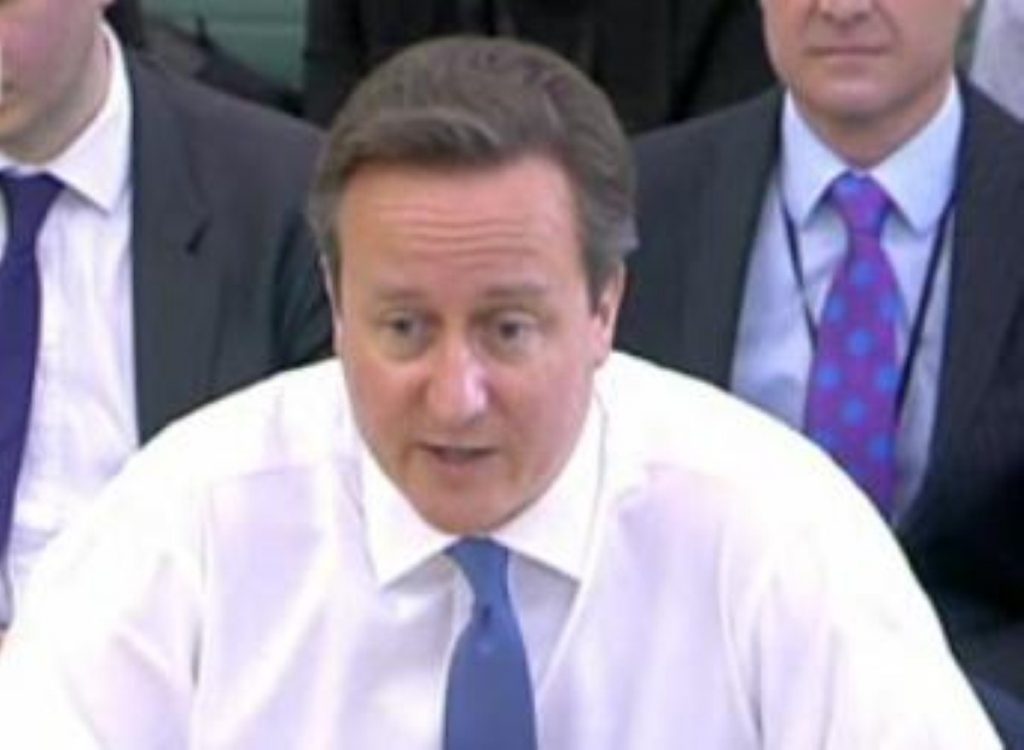Revealed: The Tory plan to sabotage future Labour laws
A blatant power grab by the Conservatives is now taking shape in Westminster – after David Cameron took a major step in revealing the details of the Tories' plan under questioning from MPs.
The prime minister's proposal is to ensure that on bills affecting English-only MPs, both the whole of the UK parliament and England-only MPs will be given vetos during the late stages of the legislative process.
'Late stages' is key. It means that throughout the parliamentary debates on any particular bill the government of the day will face the prospect of a potential English veto ruining everything.
The English veto vote would come after the final opportunities to amend the bill take place at report stage. This 'take it or leave it' approach for the package as a whole already applies at third reading. It would still do so, but by effectively creating an English-only third reading vote in addition to the existing one the voices of the English would become critical.


As Cameron put it, if this English veto were to become reality the result is another layer of complexity in the private talks that accompany every piece of legislation:
"You end up with quite a lot of negotiations sometimes between English MPs who might take a particular view and the government of the day, and I think that's got a lot of attraction."
Taking up Cameron on this point, Andrew Tyrie – arguably the most important Tory backbencher who needs to be won over on EVEL – carefully questioned the prime minister on the precise definitions of what he is actually seeking.
The PM described three options. Firstly, Lord Lorton's "purest" idea that only the English get to vote on English laws. Secondly the proposal of the MacKay Commission, which was set up to look at this issue earlier this parliament, to create a 'legislative consent motion'.
This offers English voices for English laws, but allows the whole of the UK parliament to override any changes made by English-only MPs. Tyrie has been dismissive of this, saying in a statement after the session: "The Commission's proposals would ultimately enable the UK parliament to impose legislation on England and would not deliver the pledge to secure English votes for English laws."
The third option is the one being advocated by none other than Tyrie himself. He pressed the prime minister to agree with him on exactly this point: does English consent require that it take the form of a veto vote which "cannot occur before report stage, because if it does it can then be amended back to its original form using UK votes"?
The prime minister's reply was not exactly a soundbite, but made clear his view:
"I think there's a very strong argument – I think that is the effect I believe we should achieve. I think we're on the same side.

Uniting the Conservatives behind a proposal has been the party leadership's primary goal. It is going to take a month or two to ensure the entire party is happy with the ideas; and Politics.co.uk understands the senior Tories debating their options are still unclear about whether they might choose to incorporate some elements of Ken Clarke's ideas involving a 'grand committee', as favoured by the Liberal Democrats. That suggests the Tories' coalition partners can still hope they can win the Conservatives around to their committee idea.
That just leaves Labour, which remains entirely disinterested in the whole process.
While much of this conversation takes place in confusing constitutional terms, really it's a political one. Labour has quite understandably run for the hills at the first suggestion the huge advantage it enjoys from its Scottish MPs might somehow be removed.
In a scenario where England-only MPs were voting on a controversial measure being put forward by a weak Labour government – still highly plausible after May 7th 2015 next year – the fear paramount among Labour figures in parliament is that the Tories would be able to nix the government's business.

If adopted, Cameron's version of English votes for English laws unveiled today would make it much easier for the Tories to prevent Labour reforms in the years when they are out of power. Britain, by definition, would become a more Conservative place. It is entirely accurate to describe Cameron's proposal as an attempt to make this country a place where Tory policies are not only easier to implement, but much harder to repeal and reverse too.
Yet the figures don't suggest the impact of this change is quite as weighty as the opposition worries.
In 1997, 2001 and 2005 Labour would still have been on top. What matters here is the size of Labour's majority – and its ability to push through controversial reforms with impunity. New Labour's massive majorities meant that the leadership could ignore even significant rebellions and still be confident it would ultimately win the day. That wouldn't apply with a majority in the 20s or 30s.
Still, what Cameron is offering might just be a way out for the opposition. The Tories are dangling a deal before them that removes some, but not all, of the inbuilt advantage the West Lothian Question gives them over British politics.
Yes, this is a Tory masterplan which if successful would change our politics forever. But it's also an unexpectedly nuanced one. Might Labour at least be tempted to come to the table and start talking about it?

